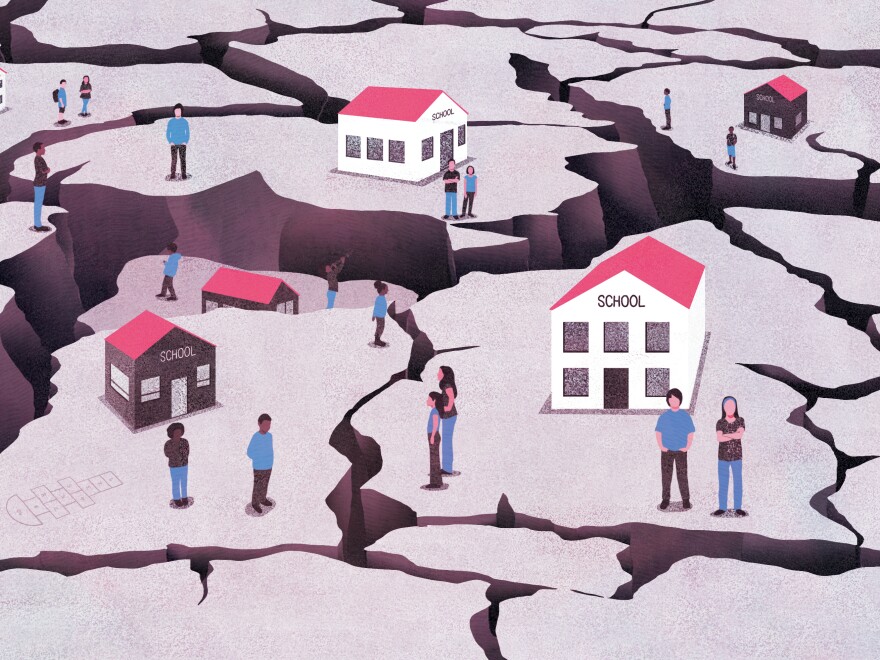In 1951, William Faulkner wrote, "The past is never dead. It's not even past." It's a line that's been rattling around my head for the past week now, since reading the news of a school district in Virginia that voted to turn back time. How? By . And what struck me most in reading about the change was not the adults arguing about the names. It was the kids.
In 2020, at the height of the country's "racial reckoning," the two Shenandoah-area schools had first changed their names, in order to separate themselves from the legacy of racism that those names represented. But , the tide was turning back. So, after a couple more years of debates, Mountain View High School will now, once again, be Stonewall Jackson High School, and Honey Run Elementary School will be Ashby-Lee Elementary School, .
It's no huge surprise to me that some of the school's older alumni would have fought to bring back those names. We've talked before on Code Switch about the idea that symbols and mascots and school names often wind up developing a sort of mythical importance to the people who grew up with them. And this isn't just the case for white people who are willing to stomach racist referents. My colleague, Gene Demby, – that of a notorious slave owner. "We all undertake the awkward mental gymnastics of making space for ugly cultural objects when they're familiar, when our personal memories are wrapped up in them," Gene wrote at the time.
[Editor's note: This is an excerpt of Code Switch's Up All Night newsletter. You can .]
But what about the young students involved? Turns out, they were split, just like the adults — despite not having the same nostalgic associations with Stonewall and co. Some described the Confederate names as hostile and unwelcoming. But others wanted the old names back – like one eighth grader who, as my colleague reported, , "I would like to wear a name that I'm proud of. ... Not only do I want to have my [Future Farmers of America] jacket say Stonewall as I enter high school, but I would also love to have my jerseys — which I wear all year round — say Stonewall."
Which feels like a telling example of the way that things like pride are passed down – for better or for worse.
It's become a cliche for parents to look at their young children and see a kind of purity and innocence. "My kids don't see race," they'll say. But decades and decades of research has suggested the opposite — that , and that . By middle school, . And as kids grow up, their taste and politics and beliefs are shaped deeply by their parents. Much is made over generational differences – of youth making up for their parents' shortcomings. But a recent Pew research study found that . So by some metrics, young people are far more likely to become their parents than to correct for them.
Which means that if the children are our future, as that old saw goes, then our past my be our future, too. Alternatively: If we *adults* want a better world, we should probably stop fantasizing about the next generation saving us, and do a little more work to save ourselves.
Copyright 2024 NPR






